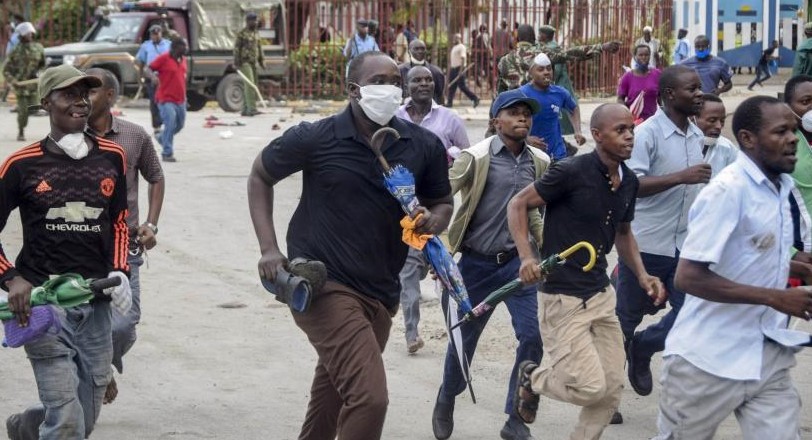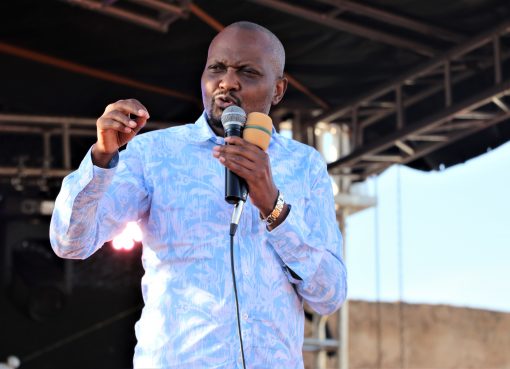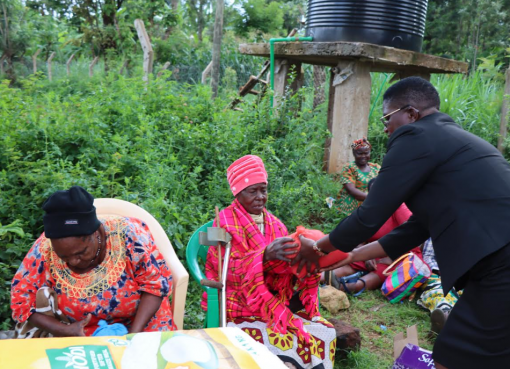As the world was bidding goodbye to 2019 and ushering in 2020, a new global health scare was in the offing.
It was on 30th December 2019 that COVID-19 was reported to the World Health Organization (WHO). And on 30th, January 2020, WHO declared COVID-19 a global health emergency.
Later on 11th March 2020, WHO declared COVID-19 a global pandemic, plunging the world into a panic mode.
Back home in Kenya, the Ministry of Health (MoH) and the government, in general, were closely observing the development and taking necessary precautions to keep the citizen safe.
However, that streak of luck ran out on 12th March 2020 when the first Covid-19 case was reported in Kenya.
For a country that is normally stretched to the limit by common health issues, the challenge of controlling the spread of the global virus was daunting. In essence, a new norm was dawning in Kenya and urban populations were the first line of weakness.
Acknowledging the first coronavirus case on 13th March 2020, the outgoing Cabinet Secretary (CS) for Health Mutahi Kagwe assured the citizens of the country’s preparedness to combat the pandemic while also announcing a raft of health and hygiene guidelines.
“We have been beefing up our preparedness capacity since the first Covid-19 case in Wuhan, China. We will be ready to use every available resource to better our odds against this new enemy,” said CS Kagwe then.
What followed was widespread cases of Coronavirus not only in every part of Kenya but in the rest of the world.
The world was thrust into shock with the masses helpless on what to do in the face of the pandemic with the potential to wipe out a significant portion of the global population.
“When Covid-19 cases rose alarmingly, people panicked. It was the worst kind of reaction you would expect from a pandemic that had the potential to wipe out billions of human population,” said Dr. Mohammed Machi, the medical superintendent at Mwatate Sub-County hospital.
The media, and government via the ministry of health took to reporting on the new pandemic, but due to little information on the disease then, myths and half-truths abounded and further worsened the dire health situation.
“You would agree with me there wasn’t a lot of good reporting on COVID-19 in the early days and months. There was a void and this was quickly filled by myths and half-truths,” said Dr. Machi.
Even when the first Covid-19 vaccine was announced, the wave of myths and half-truths almost convinced the masses against the vaccines and it only took bold individuals to take the first step to be inoculated.
“The wave of the myths and half-truths was so strong that people were convinced the Covid-19 vaccines were not good. Only a few bold individuals made the first step and that was the turning point for the fight against the pandemic,” said Anita Kagwiria, assistant nurse manager at Mwatate sub-County Hospital.
A bunch of others believed COVID-19 to be a conspiracy theory by global political leaders to spread panic and necessitate wanton use of public resources.
“We had all manners of myths. Some believed they would become impotent, others said vaccinated people would die in two years. The worst of it all was the popular belief that Covid-19 was a farce created by global political leaders to plunder public resources,” said Anita.
Today, though the world is yet to completely shake off the pandemic, the worst days are behind us. From the millions of lost lives, shattered careers, disparaged economies, and crippled healthcare systems; the world can only take notes from the pandemic and prevent the recurrence of such in the future.
“Lives were lost, economies crushed, careers were shattered, and healthcare systems were rendered ineffective and inefficient. We cannot undo all these but we have come out of it with lessons we can use to prevent and contain future pandemics,” added Anita.
During a Covid-19 post-assessment meeting held at VOI that was attended by health officials from the Department of Health in Taita Taveta, County government, representatives from USAID Stawisha Pwani Project, and members of the press, stakeholders underscored the importance of accurate reporting on health issues.
According to Eva Mwandembo, the County Expanded Programme on Immunization logistician, the information on several media outlets played a role in or against the COVID-19 fight.
“What was in the media played a significant role for or against the COVID-19 fight, generally, the information helped to calm the populations,” said Mwandembo.
She said that while the media played its role in informing the public, there were a lot of grey areas that left the masses second-guessing what to do and believe during the fight against the pandemic.
She added it was time that health reporting was streamlined to better the odds to prevent a repeat of the Covid-19 missteps. “The media performed its duty of informing the public but there were many grey areas that left the public second-guessing what to do and believe. Reporting on health issues should be streamlined. We also need to be better prepared to avert another pandemic in the future,” Mwandembo said.
In Taita Taveta County, the health department plugged into the networks of media and community mobilization to push the agenda for Covid-19 vaccination. The efforts paid off as the county took the second, and third positions in the vaccination drive in the country.
“We tapped into the power of media and community mobilization to drive Covid-19 vaccination awareness. Our efforts paid off as Taita Taveta was ranked second, and third positions in vaccine uptake during different phases of the pandemic in the entire country,” she said.
The benefits of working closely with the media, Mwandembo noted also improved the number of people living with HIV/AIDS getting Covid-19 jabs, placing the county in the first position for the most Coronavirus vaccinated registered people with HIV/AIDS in the coastal region.
According to statistics from USAID Stawisha Pwani Project, out of a total of 5,502 registered people with HIV/AIDS in the county, 3,716 are fully vaccinated for Covid-19, representing 73 percent.
Globally, the reporting on the Covid-19 pandemic helped to debunk myths and put forth facts that have since improved vaccine uptake and steered the world to a path of recovery. Reporting on health issues therefore holds the key to public preparedness to deal with another global pandemic in the future.
By Arnold Linga Masila





